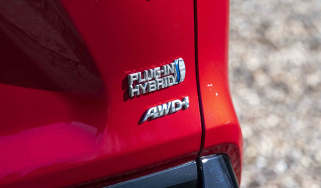Used car buying scams, problems and pitfalls: how to stay safe
There are a few things to watch out for when buying a used car – here’s what you need to be aware of

For many drivers, buying a used car is the best way to get a great deal on a reliable set of wheels, but it can be a minefield of potential scams and pitfalls if you don’t know what to look for. We’ve covered the most common used car scams and the best practices to avoid them, so you can navigate the second-hand car market with confidence and find your ideal next car.
Read on for our list of the most common car scams to look out for. We also have a simple used car buying checklist that covers the basic areas to inspect, along with a list of the best questions to ask when buying a used car.
Used car scams to watch out for
1. Fake online listings
If you’re searching for a used car online, then you’ll more than likely have to sift through many online adverts to find the car you’re after. While the majority are genuine, some sellers try to take advantage of unwary buyers with fake listings. Typically, the listing will be advertised at a temptingly low price to catch a buyer’s attention but will require an ‘upfront deposit’. Upon payment, the seller will walk with the cash and cut all communication, leaving the buyer out of pocket and without a car.
2. Cars with a hidden history
Sometimes, a seller may not be upfront about a car’s history, withholding the fact that it’s been involved in an accident or that it’s been written off. If a seller hasn’t been truthful about the condition of the car, you could end up purchasing a car with hidden mechanical problems or one that’s potentially unsafe.
3. Cloning
Cloning is the process of disguising the identity of a stolen car by copying the identity of a similar one. The stolen car will be listed for sale with number plates and documents that match a similar vehicle, making it very hard for a buyer to detect that the car has been stolen. Ending up with a previously stolen car can give rise to legal headaches further down the line.
4. Clocking
Clocking is the process of tampering with a car’s odometer to change the mileage to appear lower than it actually is. Cars with a lower mileage typically command a higher sale price, so clocking is a scam used to artificially inflate a vehicle’s value. Cars with higher mileage may also present mechanical issues sooner, turning an inexpensive used car purchase into a costly headache.
Now that you know a bit about common car scams, here are our top tips for avoiding them:
Top tips for avoiding used car scams
1. Always carry out a background check
Whether you’re planning to buy a used car from the driveway of a private seller, or an approved used car from a franchised ‘main dealer’, it’s always worth carrying out a HPI check. An HPI check is a comprehensive background check carried out by a trusted organisation, such as HPI, the AA or the RAC, and will flag if the car has ever been reported stolen or written off, or if it’s subject to outstanding finance.
It’s common that a dealership will perform its own checks on any car it sells, but it can still be prudent to double-check the information reported.
It’s possible to check a car’s MoT history for free using the Government’s online MoT history checker. This will give you a quick snapshot of the car’s recent history, including its mileage and any MoT failures. If the mileage appears inconsistent with the listing, either ask the seller for more information or walk away.
As cars grow increasingly complex, a full mechanical condition report is also recommended, especially if you’re planning to buy an older car. This should help to expose hidden flaws that a temptingly priced used car might conceal, protecting you from buying a car that’ll soon need costly repairs. While this can cost over £100, that investment could pay for itself several times over.
Naturally, the seller will need to agree to any inspection taking place, and refusal could be a pointer towards the car being known to have serious defects.
2. Always view the car in person
The safest way to protect yourself from fake online used car adverts is to always view the car before handing over any money – even a deposit. Viewing the car in the metal will give you the opportunity to carry out your own inspection, rather than just taking the seller’s word over the phone. Once you have seen the car for yourself, carried out an HPI check and checked the car’s V5C registration document and service history, you should have the confidence to either hand over your cash or walk away.
If a seller is reluctant to let you view the car or insists on receiving a deposit beforehand, it should be a clear indication to walk away. The ‘seller’ will usually have no car at all, and will be aiming to secure a deposit from the buyer which they can pocket before disappearing.
3. Research the exact car you’re looking for
It’s vital that you do a bit of research before you go car shopping. If you know what model of car you’re looking for, learn what features it comes with. There are occasions when a car isn’t quite as described – sometimes a car can visually resemble a higher model in the range and is then found to lack certain features when closely inspected. The ease with which wheels, for instance, can be swapped between cars, make this a growing issue.
Be aware of any updates that were rolled out when the car you’re looking at was built. It would be a shame to miss out on improvements that were made just after a car that you buy was built. Sometimes cars built after a certain date were given new features and refinements that slightly earlier models lack.
It can be well worth joining an internet forum that specialises on the car you’re looking at. It can be very difficult to determine the exact specification of a car unless you have its chassis number, but there are many online experts out there who can dispense advice on what to look for.
4. Research the seller
You have a choice of where to buy a used car from today, but it always pays to research the seller. Whether you’re looking at a car sold by a franchised dealership or a private individual, there are steps you can take to make sure you’re dealing with someone trustworthy.
If you’re buying a used car from a dealership, a quick online search should provide reviews from other customers. If you’ve found the dealer through an online listing, it’s worth checking that the address, phone number and e-mail address are all genuine. While uncommon, a scammer may pose as a fake dealership in order to trick a buyer into handing over a deposit, so make sure the details all add up.
Private car sale sites, such as eBay, Gumtree and Facebook Marketplace, allow you to view a seller’s profile and check whether they have any feedback, how long they’ve been using the site, and whether they have any other listings. A seller who’s only been on the platform for a few days but has multiple car listings would be unusual, and should ring alarm bells.
5. Know the total cost of the car
You should never buy a car unless you know that you’re not paying over the odds for no good reason. Browse widely online and establish the market value of any car you’re buying. If a car appears to be priced higher or lower than similar vehicles, there’s no harm in asking why.
This is especially the case if you’re buying a car on finance. Although a monthly figure you’re quoted may look attractive, pay attention to the full terms and conditions and total cost of the finance package; many require a large final payment to buy the car outright.
Be sure that all costs of any agreement you enter into are declared up front. If the dealer or its finance provider isn’t widely known, do some research to check that you’re getting a good deal. Don’t agree on the first deal you’re offered, unless you’re truly happy with the costs.
It’s worth finding out which finance provider the dealership used. You’ll be able to look for online reviews and often be able to compare finance examples with those from more widely-known companies. If you have any doubts as to a finance company’s credibility, buy elsewhere.
Remember – there’s no shortage of well known organisations you can borrow money from. Many have online calculators you can use to determine how much you can safely spend without exceeding a monthly payment you’re comfortable with, and which will disclose details like total costs and any additional fees. If the dealership can’t compete with quotes you’ve received elsewhere, it may still be worth buying the car for cash using finance arranged by yourself.
More used car buying advice
- How to buy a used car
- What car should I buy?
- How to budget
- PCP finance for used cars
- Used car leasing
- Buying a used hybrid car
- Buying a used electric car
- Pre-registered cars
- Cat S and Cat N cars
- Where to buy a used car
- Used car brokers
- Used car auctions
- Car dealerships
- Used car buying checklist
- Questions to ask when buying a used car
- How to value your car
- How to negotiate a car purchase
- What is an HPI check?
- What is a repossessed car?
Recommended

Petrol and diesel car ban relaxed with hybrids permitted beyond 2030

Classic car tax exemption: which historic vehicles qualify?

Car warranties: guide to new and used car warranties
Most Popular
Tips & advice

Car dashboard warning lights: what does each symbol mean?

Electric car charging stations: public networks, charger types, apps and maps






